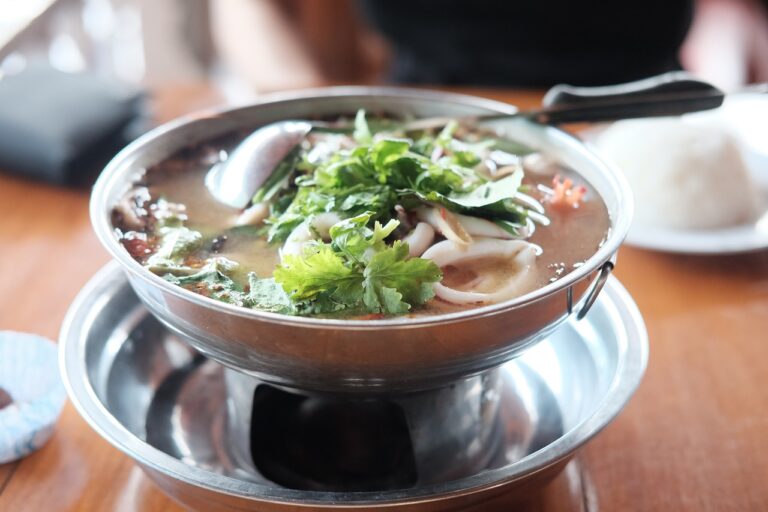Sustainable Practices in Coffee Transportation and Distribution
allpaanel mahadev book, lotus book 365 registration, laserbook 247:Coffee is one of the most popular beverages in the world, enjoyed by millions of people every day. But have you ever stopped to think about how that coffee makes its way from the farm to your cup? The transportation and distribution of coffee is a crucial part of the coffee supply chain, and it can have a significant impact on the environment and local communities.
In recent years, there has been a growing movement towards more sustainable practices in the coffee industry. From small-scale farmers to large multinational companies, there is a recognition that we need to do more to protect the planet and ensure that coffee production is sustainable for future generations.
Transportation and distribution are key components of the coffee supply chain, and they offer opportunities for companies to reduce their environmental impact and support local communities. In this article, we will explore some of the sustainable practices that are being used in coffee transportation and distribution, and discuss how these practices can benefit both the environment and the people involved in the coffee industry.
Sustainable Coffee Transportation
One of the most significant challenges in coffee transportation is the long distances that coffee has to travel from the farm to the roastery. Coffee is typically grown in tropical regions around the equator, such as Latin America, Africa, and Southeast Asia. After it is harvested, coffee beans need to be transported to processing facilities and then on to roasters and distributors around the world.
The transportation of coffee can have a big impact on the environment, as it often involves long journeys by ship, truck, and sometimes even airplane. These modes of transportation can produce greenhouse gas emissions and contribute to air pollution. To reduce the environmental impact of coffee transportation, companies are increasingly looking for ways to make their supply chains more sustainable.
One key strategy for sustainable coffee transportation is to reduce the carbon footprint of shipping coffee beans. This can be done by optimizing shipping routes, using more fuel-efficient vehicles, and investing in renewable energy sources. Some companies are also exploring alternative modes of transportation, such as rail and sea freight, which can be more environmentally friendly than traditional trucking or air transport.
Another important aspect of sustainable coffee transportation is supporting fair trade and ethical practices. Many coffee farmers in developing countries face challenges such as low wages, poor working conditions, and limited access to markets. By working with fair trade cooperatives and ensuring fair prices for farmers, companies can help support local communities and promote social and economic sustainability in the coffee supply chain.
Sustainable Coffee Distribution
Once coffee beans have been processed and roasted, they need to be distributed to retailers, cafes, and consumers around the world. The distribution of coffee involves a complex network of warehouses, logistics providers, and retailers, and it is another area where companies can make a difference in terms of sustainability.
One of the key challenges in coffee distribution is reducing food waste. Coffee has a limited shelf life, and if not stored or transported properly, it can spoil or lose its freshness. To prevent waste, companies are adopting innovative packaging solutions, such as compostable bags and recyclable materials, that can help extend the shelf life of coffee and reduce the amount of waste generated in the supply chain.
Another important aspect of sustainable coffee distribution is promoting local sourcing and supporting small-scale producers. By working with local suppliers and farmers, companies can reduce the carbon footprint of their distribution network and support local communities. This can also help to build stronger relationships with suppliers and ensure a more transparent and ethical supply chain.
In addition to these strategies, companies are also exploring new technologies and digital platforms to improve the efficiency of their distribution networks. By using data analytics and smart logistics solutions, companies can optimize their supply chains, reduce greenhouse gas emissions, and improve the overall sustainability of their operations.
FAQs
1. What are some sustainable transportation practices in the coffee industry?
– Some sustainable transportation practices in the coffee industry include optimizing shipping routes, using fuel-efficient vehicles, and investing in renewable energy sources.
2. How can companies reduce food waste in coffee distribution?
– Companies can reduce food waste in coffee distribution by adopting innovative packaging solutions, such as compostable bags and recyclable materials, that can help extend the shelf life of coffee.
3. Why is supporting fair trade important in the coffee supply chain?
– Supporting fair trade in the coffee supply chain is important because it helps ensure fair prices for farmers, promotes social and economic sustainability, and supports local communities in developing countries.
4. What role do digital platforms play in improving the sustainability of coffee distribution?
– Digital platforms can help improve the efficiency of coffee distribution networks by using data analytics and smart logistics solutions to optimize supply chains, reduce greenhouse gas emissions, and improve overall sustainability.
In conclusion, sustainable practices in coffee transportation and distribution are crucial for the future of the coffee industry. By reducing greenhouse gas emissions, supporting fair trade, and promoting local sourcing, companies can help protect the environment and support the communities that rely on coffee production. As consumers, we can also play a role by choosing sustainably sourced coffee and supporting companies that are committed to sustainability in their supply chains. Together, we can ensure a brighter future for coffee production and enjoy our favorite beverage with a clear conscience.







